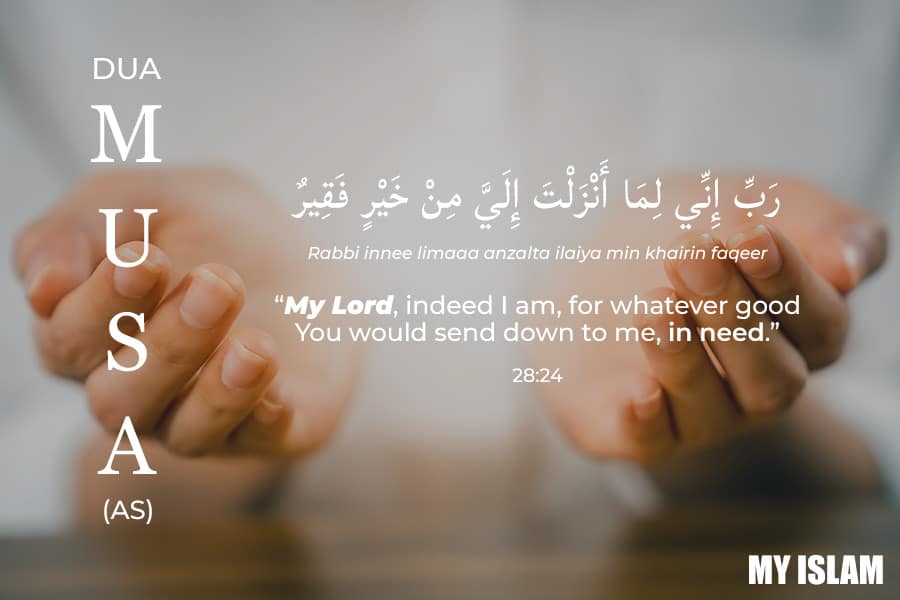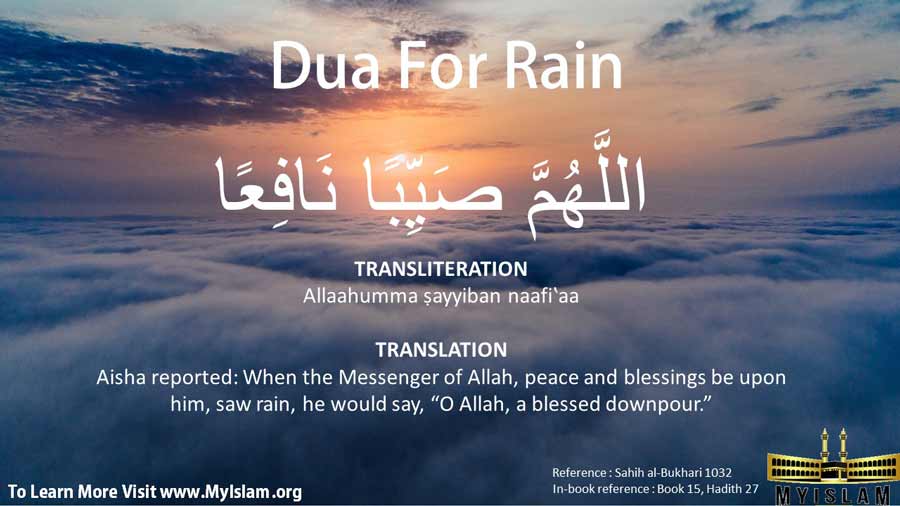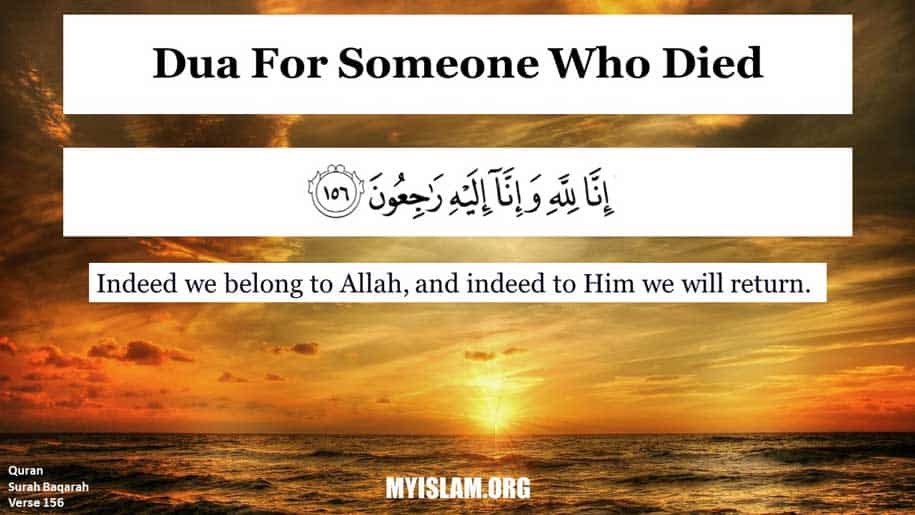
رَبِّ إِنِّي لِمَا أَنْزَلْتَ إِلَيَّ مِنْ خَيْرٍ فَقِيرٌ
Rabbi innee limaaa anzalta ilaiya min khairin faqeer
“My Lord, indeed I am, for whatever good You would send down to me, in need.”
Surah Al-Qasas Ayat 24
Key Takeaways:
- If you have any skeletons in your closet you need to pray to Allah (swt) and ask yourself what good can I create in the world today? For Musa (as) the death of the man weighed heavily on his consciousness and he took on the responsibility for self-redemption. Whatever opportunities presented themselves to do good was viewed by him as a blessing from Allah to right his wrongs. Ask yourself, how can I make it so that my being here has made the world a better place and not worse? Are there any opportunities for doing good that has been presented but maybe you’ve been ignoring?
- Musa (as) in this du’a also uses his state by saying that he is faqeer (فَقِيرٌ) meaning in dire need, or in poverty. This is a great example of how to increase the power of your du’a – Allah (swt) responds to those who show complete submission and dependence on him for change. As we learn from Yunus (as) Allah replies to those who are most in need.
- We don’t need to build a foundation helping millions of people, what’s important is that we just start somewhere. What you can do today with what you have is enough, don’t put starting off to some arbitrarily defined point in the future. Don’t wait to do good, As the proverb goes, “the best time to plant a tree was 20 years ago, the second-best time is now”. The sooner you plant the more of a chance you give yourself that the seed can grow and flourish into something much bigger than you ever could have imagined. This is the beauty in Sadaqa Jariyah. It will be the gift that keeps on giving, long after we are gone.
- And so, we learn through Musa (as), the best way to act and bury your bad deeds is to pile on a much greater ratio of good deeds. Every chance to do good is an opportunity that Allah has bestowed upon you, so you should take it and run. Wake up every day and try to see all the opportunities around you, be grateful to Allah you get the privilege to be of service today.
The recitation of this du’a was after Musa (as) was forced to escape from the city, into the desert, and headed towards Madyan.
After a long journey, Prophet Musa (as) came across a group of male shepherds who were watering their flock at a well. Keeping their distance, he noticed two women waiting in the back with their sheep. Why? For whatever reason, they felt it was safer to wait than to mix with the men who were gathered at the well.
They explained to Musa (as) that their father was an old man and unable to feed their flock, so they had to take on this duty. Now keep in mind that Musa (as) himself was disheveled and exhausted from his travels, he likely did not have much to eat or to drink. Still, he empathized with their situation, “So he watered (their flocks) for them; then he turned back to the shade…”(28:24) as he turned back to the shade he recited this du’a, Rabbi innee limaaa anzalta ilaiya min khairin faqeer meaning, “My Lord, indeed I am, for whatever good You would send down to me, in need.”
Musa (as) acted in an honorable manner to help these women in a foreign town amongst strangers. He prayed to Allah, asking him to provide more opportunities to do good acts like the one he just did. Also note, after having helped the women he did not stay and mingle, it says “watered (their flocks) for them; then he turned back to the shade”. Musa (as) in this du’a also uses his state by saying that he is faqeer meaning in dire need, or in poverty.
Lesson from this du’a
What we can learn from this du’a is if you have any skeletons in your closest you need to pray to Allah and ask yourself what good can I create in the world today?
For Musa (as) the death of the man weighed heavily on his consciousness and he took on the responsibility for self-redemption. Whatever opportunities presented itself to do good was viewed by him as blessing from Allah to right his wrongs.
Ask yourself, how can I make it so that my being here has made the world a better place and not worse?
This does not mean we need to build a foundation helping millions of people, what’s important is that we just start somewhere. What you can do today with what you have is enough, don’t put starting off to some arbitrarily defined point in the future. Avoid the chatter in your mind that wants to procrastinate, “oh, once my kid graduates from high school” or “oh, once I have this, that and the other thing, then I can…”. This is a very dangerous way to rationalize not doing anything because you it’s very easy to begin to believe it.
We only have a limited time on this planet
The average person will have 900 months on this planet (that’s 75 years if you do the math) and our childhood occupies 216 months of that (684 months left), this does not include all the months that are lost to sleeping, watching TV, commuting, and working which probably takes up another 70%.
This leaves us with 205 months.
That number scares me.
I tell you this because we should feel a sense of urgency to act now. As the proverb goes, “the best time to plant a tree was 20 years ago, the second-best time is now”.
The sooner you plant the more of a chance you give yourself that the seed can grow and flourish into something much bigger than you ever could have imagined. But even if reality did not match your ambition how could you be saddened by the fact that, (1) you put yourself out there and tried and (2) that you still touched the life of one individual for the better?
And so, we learn through Musa (as), the best way to act and bury your bad deeds is to pile on a much greater ratio of good deeds. Every chance to do good is an opportunity that Allah has bestowed upon you, so you should take it and run. Wake up every day and try to see all the opportunities around you, be grateful to Allah you get the privilege to be of service today.




Thank you so much Sir
So the best article i read today keep going with this good work!💌